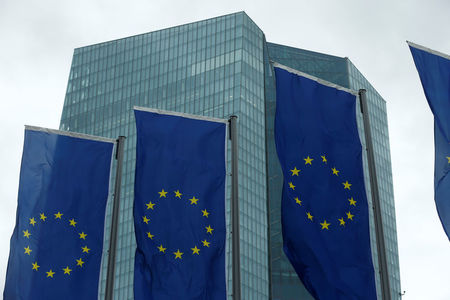Here are three ways the EU could respond to US tariffs, according to Goldman Sachs
2025.01.20 09:19

Investing.com – The European Union has three possible policy options to respond to sweeping import tariffs proposed by US President-elect Donald Trump, according to analysts at Goldman Sachs.
Trump has suggested that the US could impose harsh levies on incoming goods from both friends and foes alike, with economists and strategists arguing that they could be used as negotiating tools.
Along with a 60% tariff on Chinese goods and a 25% import surcharge on Canadian and Mexican products, Trump has said he may slap duties of 10% on global imports.
Should Trump, who is due to be sworn in as president on Monday, move to enact this policy, the EU has three options, the Goldman Sachs analysts led by Sven Jari Stehn said in a note to clients.
The first could see the bloc activate a tit-for-tat tariff response on a broader set of products than those included in a prior trade stand-off with the US during Trump first term in the White House. Previous goods targeted by the EU in 2018 and 2021 extended to everything from sports gear to paper products.
“As in 2018, we would expect the EU to retaliate against US tariffs as soon as they are introduced. However, the timing and risk of higher tariffs escalating into a trade war will depend on whether the US administration raises tariffs through a process that follows [World Trade Organization] guidelines or unilaterally,” the analysts said.
Europe could also move to “dilute” its long-standing support for free trade and turn more defensive on Chinese imports in a bid to appease Trump, the analysts argued.
Indeed, they said that the “vast majority” of the EU’s ongoing investigations concerning imports into the region “already focus on China”, with many of these centering around products sold in importing countries at less than market value.
But the EU would likely not be eager to exacerbate such tensions with China, as the move would mark a shift away from the bloc’s free-trade principles and likely spark a retailiatory response from Beijing, the analysts said.
Instead, the EU may choose to adopt a more conciliatory posture with Trump, particularly by opting to purchase more US and oil and increase defense spending, the analysts said. Trump and his staff have already suggested that this could provide the EU with a path to avoiding the import tariffs, the analysts added.
Although some European policymakers have flagged that this committment may place upward pressure on European import costs, the analysts noted that “forward prices for natural gas seem to imply that Europe could agree to this demand at a relatively manageable cost if it is implemented as the signing of new long-term [liquefied natural gas] contracts with US export facilities”.
Meanwhile, an uptick in military spending would be “challenging” unless EU members adjust their views on fiscal priorities, the analysts flagged. They still expect the EU to raise defense expenditures in the next three years, but they warned Brussels’ progress on this policy shift “may prove too slow” for the Trump administration.
As a result, if Trump decides to go ahead with the tariff increase, the EU will “promptly retailiate with higher import duties on US consumer goods”, the analysts predicted.
“However, the risk of this escalating into a trade war could be reduced depending on the promptness and size of Europe’s fiscal adjustment,” they said.








